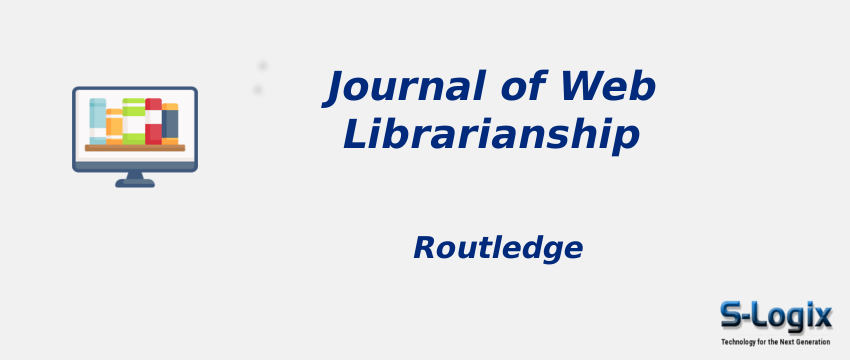Journal Home: Journal Homepage
Editor-in-Chief: Graham Sherriff
Print ISSN: 1932-2909
Electronic ISSN: 1932-2917
Abstracting and Indexing: Scopus
Imapct Factor 2024: 3.0
Subject Area and Category: Computer Science, Computer Science Applications, Social Sciences, Library and Information Sciences
Publication Frequency:
H Index: 23
Q1: Library and Information Sciences
Q2:
Q3:
Q4:
Cite Score: 3.7
SNIP: 1.616
Journal Rank(SJR): 0.887
Latest Articles: Latest Articles in Journal of Web Librarianship
Guidelines for Authors: Journal of Web Librarianship Author Guidelines
Paper Submissions: Paper Submissions in Journal of Web Librarianship
Publisher: Routledge
Country: United States
